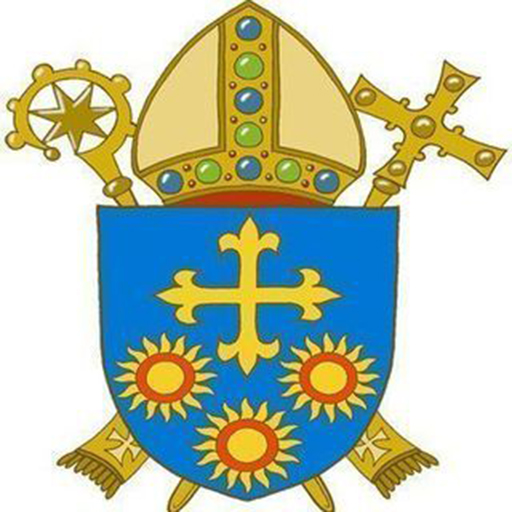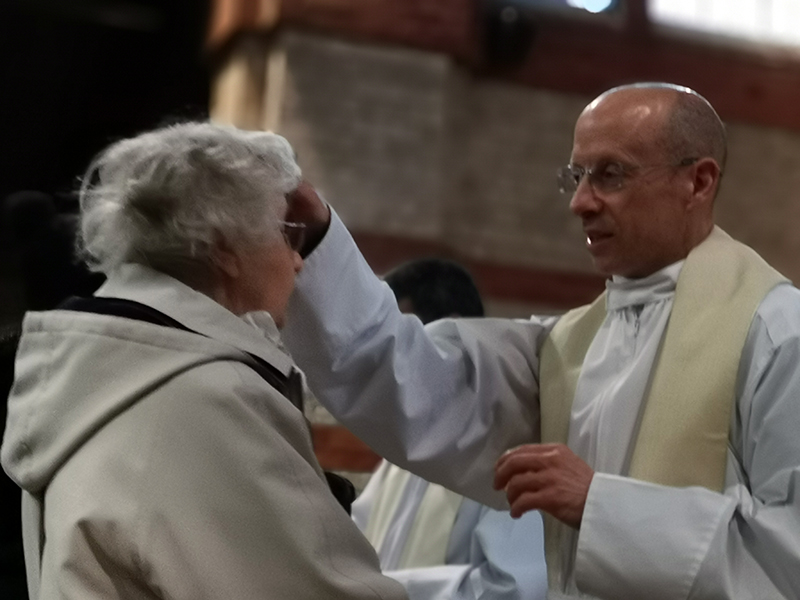Anointing of the Sick
Anointing of the Sick is “one of the seven sacraments, also known as the ‘Last Rites’ or ‘Extreme Unction’, administered by a priest to a baptised person who begins to be in danger of death because of illness or old age, through prayer and the anointing of the body with the oil of the sick.
The proper effects of the sacrament include a special grace of healing and comfort to the Christian who is suffering the infirmities of serious illness or old age, and the forgiving of the person’s sins” (Catechism of the Catholic Church, 1499, 1520, 1523, 1526-1532).
St. James advises us, “Is anyone among you is sick, let him call for the elders of the Church, and let them pray over him, anointing him with oil in the name of the Lord. And the prayer of faith will save the sick, and the Lord will raise him up. And if he has committed sins, he will be forgiven” (James 5:13,14).
Even Christians who live the new life of God’s children still remain subject to suffering, illness, and death. Illness can be experienced either as an invitation to a deeper union with the suffering of Christ which leads to greater spiritual maturity or as a path to self-absorption and even to revolt against God. In illness, we experience our powerlessness and limitations, and serious illness can make us glimpse death.
The Lord Jesus had great compassion on the sick, and His many healings are a resplendent sign that the Kingdom of God is among us. Christ even identified Himself with everyone who is sick:
“I was sick and you visited me” (Mt 25:36).
But the Lord did not heal all the sick. His healings were signs of the coming of the Kingdom, and they announced a more radical healing: the victory over sin and death through His Passover. On the Cross, the Lord Jesus took away the “sin of the world,” of which physical illness is only a consequence. By his passion and death on the Cross, Christ has given a new meaning to all human suffering: it can henceforth configure us to Him and unite us with His redemptive suffering.
“Is any among you sick? Let him call for the presbyters (priests) of the Church, and let them pray over him, anointing him with oil in the Name of the Lord; and the prayer of faith will save the sick man, and the Lord will raise him up; and if he has committed sins, he will be forgiven” (James 5:14-15).
This New Testament passage describes one of the seven sacraments: the Anointing of the Sick. This sacred anointing of the sick was instituted by Christ our Lord as a true and proper sacrament of the New Testament. The Sacrament of the Anointing of the Sick is given to those who are seriously ill by anointing them with oil blessed by the Bishop, and it is not reserved only for those who are at the point of death. This sacred anointing can be repeated for each serious illness or for a relapse of the same illness.
The grace of this sacrament unites the sick disciple more closely to the suffering of Christ, strengthens the disciple to endure his own suffering with peace and courage, and forgives any sins that were not previously forgiven in the Sacrament of Penance. The Catechism describes the Anointing of the Sick in sections 1499-1532; please study those pages carefully to understand more fully when this sacrament should be requested and what the effects of such Anointing are.
The Sacrament of the Anointing of the Sick powerfully demonstrates Jesus’ presence among us as our Healer and Comforter. It is by the anointing and the prayers of the Church that all those who are ill, face surgery or any disability come into contact with Jesus, the Divine Physician. Because of the special nature of the Sacrament, it may be received as often as needed.
If you need to receive this Sacrament for any of the reasons above, or if you are going in to the hospital, please feel free to ask the priests after Mass, or call the Parish Office on 020 8472 1181.
Please call the parish at any time in the case of an emergency to check the availability of the Parish Priest. Given the fewer priests available please do not wait until the ‘last moment’. It is better to ask for a priest during the day time after Mass, or even before going into hospital.

